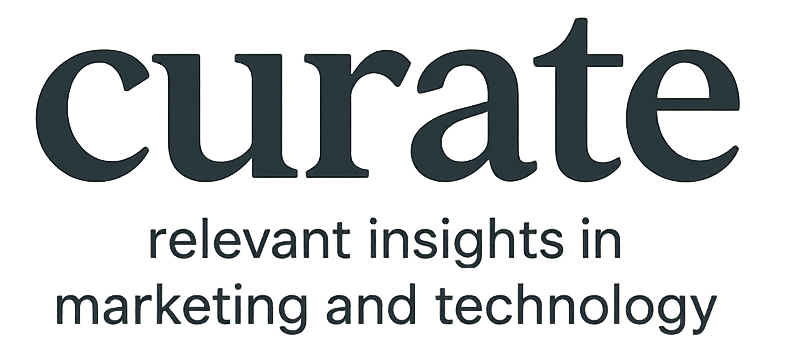So, you’re interested in podcasting.
It could be the best thing ever for your business or it could be a year of slogging through a content creation machine. This article is written to help you think through which side of the spectrum your potential venture might fall on.
But first, let’s explore some of the history of podcasting and the impact it has had on marketing and advertising…
“Podcasting was developed in 2004 by former MTV video jockey Adam Curry and software developer Dave Winer. Curry wrote a program, called iPodder, that enabled him to automatically download Internet radio broadcasts to his iPod. Several developers improved upon his idea, and podcasting was officially born. Curry now hosts a show called The Daily Source Code, one of the most popular podcasts on the Internet [during its time].” https://computer.howstuffworks.com/internet/basics/podcasting1.htm
Since then the podcasting industry has exploded with over 700,000 active podcasts available and over 29 million episodes floating around on the internet. That’s a pretty large number and seems like a lot, but consider blogs. Blogs have had their heyday. How often does the average person read a blog? Back in 2010, close to 11% of the adult population had a blog. Then the marketing community jumped on the bandwagon and lauded blogs as the best thing since sliced bread. Today, there are over 400 million blogs living on the internet. 700,000 doesn’t sound so big anymore, does it?
Podcasting Today
Is, as Seth Godin phrased it, “podcasting the new blogging”? In some ways, it is. Just like blogs, podcasts are virtually unregulated. You don’t need a license or permit to podcast. Just like blogs, you can have subscribers. And just like blogs, the podcasts with good content will rise to the top. However it also differs from blogs in some important ways. Blogs require time and mental energy for your audience to digest, whereas podcasts can be consumed relatively passively while your audience is driving, sunbathing, or even working. The rate of consumption of blogs is also dependent on things like your reader’s reading speed and their ability to set aside time to read the blog on their phone or computer screen. So, in a way we are at the dawn of the podcasting age. It has crossed over the line in American culture and become mainstream. But buyer beware: don’t repeat the same mistakes businesses did with the blogging craze. Make sure your audience wants what you are producing, otherwise you’re just more noise.
What are the marketing benefits of creating a podcast associated with your brand?
Thought leadership.
There is a lot of noise in our world today. People are having to wade through astronomical amounts of ads in all forms. They are looking for experts who are truly experts to break through all the chaos and show them the way out. Podcasts are one way they are looking for you. If you can step up and provide great content on subject matter you have some expertise in then you will become a thought leader they follow. Will you give a lot of your knowledge away? If you want to do it well. Will it be worth it? Definitely! If you are in a B2B industry thought leadership is an especially effective marketing strategy.
Extended reach.
Do you know how many extra people you might reach if you don’t have a podcast? Zero. Having a podcast will get you in front of people you might not otherwise have been able to reach. This might take some time. At first it might just be your immediate friends and family, but over time your content can begin to reach people who have never heard of your brand before. Podcast listeners also tend to be more active on social media than non-podcasters, so there is a greater chance that they will share clips or quotes from your podcast over Twitter than they will share your latest blog post (if they even read it). Also, if you have guests on your show then they are likely to share their episode with their audience and introduce to new people organically.
Increased revenue.
Sponsored episodes are the elusive snipe for many podcasters. Word on the street is that you should never start a podcast to make money. Primarily because you will go hungry for a year or more before you have an audience worth paying for. However, after you’ve churned out content week after week or month after month you might establish a moderate following. If your podcast serves a niche audience there might be advertisers that are eager to reach them.
What are the challenges of creating your own podcast?
Setup.
The initial launch of a podcast can take a lot of time. There are a lot of things you have to think through: what’s it going to be called, what format is the show going to be in, do you need to have audio effects, what equipment do you need to get, what service will you use to syndicate it? We will tackle a few of these in a bit, but just know that you will probably need about 10 hours and $100-500 to get it going.
Consistency.
Podcaster after podcaster that I have spoken with has said that consistency is key in making a successful podcast. There are going to be weeks or months where you don’t have the time to spend on something that’s not making you money. There is no easy button here. Once you launch your podcast you have entered into a relationship with your listeners and they expect that you will produce. If you don’t then you will have a hard time retaining an audience. Out of 700,000 active podcasts to choose from, podcast listeners listen to about 6 podcasts each week. Don’t take it for granted when you make that list. That being said, choose a schedule that you are more likely to stick to. A weekly podcast requires a lot of time each week. Perhaps start with a bi weekly or monthly schedule.
Guests.
If the format of your podcast includes guests make sure you have a running list of hopeful guests for your show. Coordinating schedules to have guest come to you or vice versa and configuring software for phone call interviews presents its own challenges. Always test any new software and make sure you understand how to operate it to get what you need.
How does one actually start a podcast?
Glad you asked. Let’s imagine that you have the content for your first 3-4 episodes plotted out and you’re ready to jump in and start recording. Here are some essentials that you will need:
-
Microphone
- There are differing opinions about what kind of mic you should use for podcasting. It really depends on what sort of sound quality you are going for. Mid-range condenser mics can give your voice a great sound, but they also pick up on any tiny noise in the background so make sure you are in a very quiet space. If you have a space that will be dedicated to your podcast you might even want to invest in sound panels to help deaden the sound in the room. If you will be changing locations with your podcast you might want to get a good dynamic mic. These tend to be good for people with strong voices. A good add-on to consider is a pop filter. This is an attachment that connects to your mic stand and deadens the ‘pops’ from certain words that naturally get accentuated otherwise when recording. Check out micreviews.com’s suggestion for good podcast mics.
-
USB Interface
- Many consumer level mics connect directly via usb. However, if you are getting a mid to high range mic then you will need some sort of interface so that you can get the signal into your computer. We use the Scarlett and it works great. It also allows us to record multiple tracks at once so we can adjust the volume and EQ for each person separately.
-
Software
- If you are on a Mac, then GarageBand is hands down the easiest podcast recording software that’s out there and it doesn’t sound half bad. If you are on a Windows computer then Audacity is the industry-standard. You might also want to consider Adobe Audition. If you already have a Creative Cloud subscription there is a good chance you have access to Audition.
-
Intros, Outros, Drops
- If you really want to make your podcast sound polished then consider having someone create dj drops or intros for you. Fiverr is a great place to find creators to do this relatively cheaply.
-
Syndication
- Podcast apps including Google’s and Apple’s rely on a feed of your podcast to keep their information up to date and let subscribers know when a new episode has posted. Most podcast apps use a technology called RSS, or Real Simple Syndication. If you have a WordPress website there are plugins that let you create this fairly easily for free. If you don’t want to get into setting that up then you might try a paid service like Libsyn or Buzzsprout. These services automatically send your feed to major podcast apps like Apple Podcasts, Spotify, and more. However there are several other podcast aggregators out there that you will need to manually submit your podcast to.
Should you do it?
If you can create consistent good content that helps boost the value of your brand, then go for it! But like any other business venture you need to count the costs and have a realistic understanding of the potential gains. If you would like to rent podcast studio time or have us produce your podcast then give us a call at 865-240-0297.
Want more podcasting info? Check out my interview with Joshua Crisp, founder of Solinity and host of the Bridging the Gap Podcast, as he tells how podcasting has impacted Solinity.
The Big Podcast for Small Business Episode #017, It’s My Podcast, I Can Try if I Want To.






